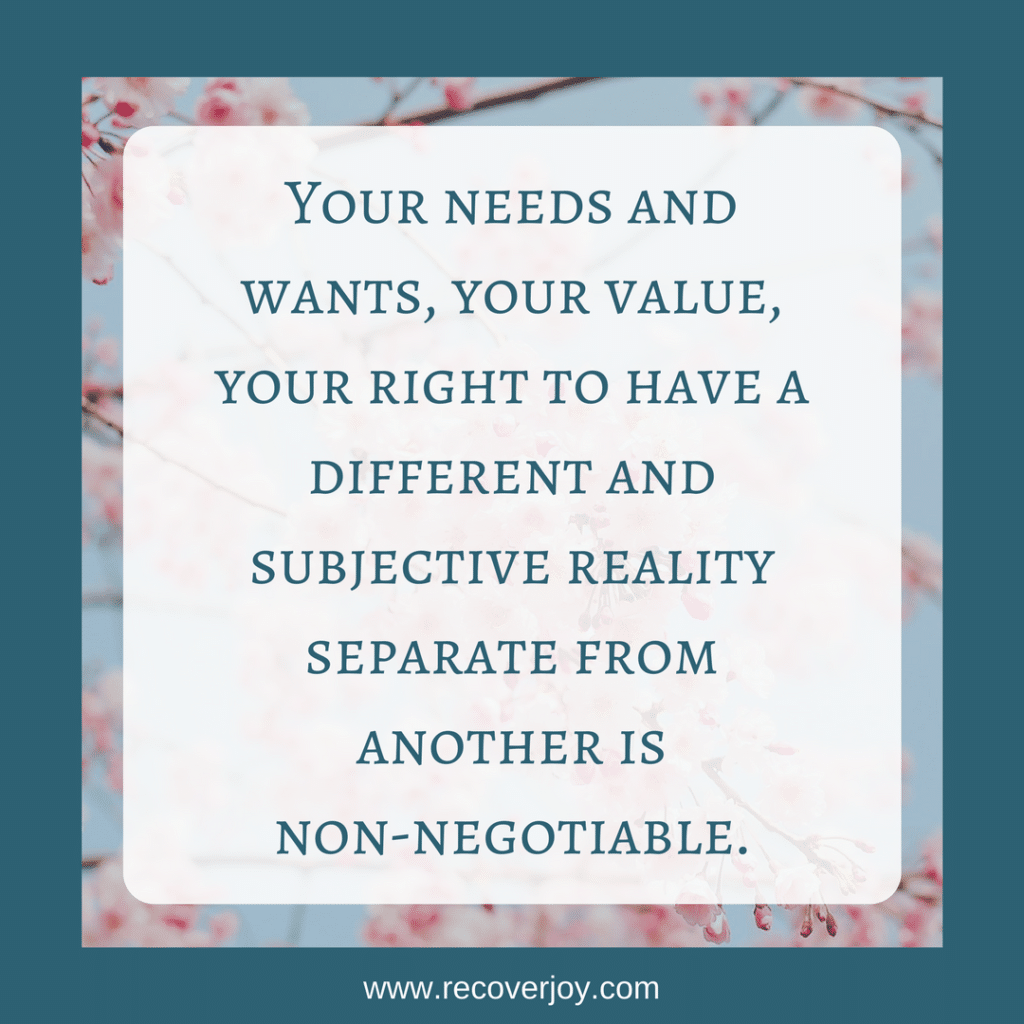I was driving my two children to school one morning in the fall and reached a road I had driven the evening before, to find that the water sprinkler that was broken that evening was still dribbling water. I said out loud to the children, “that’s a shame the water is still dribbling out from the broken sprinkler.”
I was really speaking to the air because my children in the morning are not all that engaging.
About a minute later, my daughter from the back of the car asked me, “what would happen if a tsunami hit us?”
I had to laugh because it was such an extreme jump from the trickling broken water sprinkler to a monstrous wave from the ocean, which, by the way, we don’t live anywhere near an ocean.
She was playing the “What-IF” game in her head.
We all do it at some point in our lives.
The question is, how often do you let your mind build up such a story that you are frozen with anxiety and are no longer breathing or in your body?
If you suffer from thoughts that sound like:
- What if they don’t like me?
- What if I say something and it’s not right, and then I feel little and small, like I want to curl up in a ball of shame?
- What if no one ever wants to date me or love me again?
- What if I end up homeless or jobless?
- What if I gain another pound?
- What if I don’t like the sober me?
Our mind is hard wired to keep us alive and the “What-IF’s” lend themselves to predicting the next big T-Rex. But, those don’t exist anymore.
For the sake of this article, I have one favor to ask:
Do away with the catastrophic event that might occur.
Our world has witnessed horrific events, mother-nature is a force to respect, yes, we could one day be a victim of being in the wrong place at the wrong time.
For the sake of this article, I am talking about the What-IF’s that cause us to play small and forget our power and value.
So why do we get into that part of our survival brain, the reptilian brain when it comes to our self-value?
We end up here, when we aren’t in our awareness that we can discern and trust our emotions to give us the intuitive nudge to remain safe. We end up here, when we believe we are the one that has to keep ourselves safe because we have lost trust in being divinely cared for.
We end up here as adults because we might be adult survivors of childhood trauma.
We especially end-up in the anxiety provoking, future-tripping game of predicting the outcome of all the possible things that could go wrong, if we were enmeshed with a caregiver as a child.
If you grew up in a family where emotions were not something your family “did” or allowed space to be expressed, you probably had the “What-IF’s” show up a lot in your thinking when you were relating to your family.
When your adult caregiver views you, the child, as an extension of themselves you are no longer an individual.
This set you up, as the child, to begin to play the “What-IF” game as a strategy to survive.
In order for you to maintain a secure connection to your caregiver, you had to, in effect, lose your sense of self to keep the adult happy or suffer the consequences.
You aren’t able to trust your intuitive nature because you’re too preoccupied trying to figure out how to get them to reflect back to you that you are o/k.
That you matter.
That you have a sense of purpose and value.
Eventually, your What-IF’s get fine-tuned enough that all you have to do is simply feel the environment to know whether or not your feelings, needs, wants, desires, perspective, or thoughts are ones that would be validated or shot down in an effort for the adults needs to be met above your own.
You are set to anticipate a reaction as you notice the stress and strain in the environment. You begin intuiting the environment, not your inner self.
Your automatic response to people is no longer a child’s game of “What-IF” it is a well-oiled mechanism of being that BELIEVES:
In order to maintain a secure connection with the humans in my life, I have to lose myself.
You begin to chameleon yourself to be whatever the adults in your life need you to be through your desire to get the response you want.
“Wouldn’t it be easier to just be alone.”
This is often the response I get from clients struggling to maintain their sense of self within their relationship.
We need connection in order to thrive in life. If we don’t have a connection to another human being we become depressed as we avoid the price of connection. All too often, I have had clients say, “can’t I just be alone, it would be so much easier.”
Maintaining a sense of security without having to auction off our authenticity requires self-esteem and boundaries.
Boundaries aren’t set-up as a child, it’s your job to practice setting and maintaining boundaries as an adult. As a functional adult, you must learn the skill set of setting boundaries in order to have a happy and healthy relationship with yourself and others.
If you are able to maintain a healthy sense of self and get into fear, your awareness of your boundaries will help you negotiate your needs and wants with yourself and others, while you continue to live from a space of being safe and in control of what works for you and what doesn’t.
There are fabulous books written on boundaries; I highly recommend Facing Codependence by Pia Mellody. I am going to set-up the basis of how you go about setting your internal boundary for the sake of providing yourself protection from made-up, What-IF’s, that you want to control. Please read before you Here download the meditation.
Your internal boundary allows in or out what others say or do.
Reality is subjective; if someone says or does something that you don’t agree with or like, you have a choice not to let that in.
Here’s how:
In your mind’s eye, envision a force field around you. Within that force field is the ability for you to see and hear all that is going on outside. It allows you to inventory what is going on inside your body while protecting you from the outside world.
You don’t take anything inside this energy field unless you allow it.
It protects you from what you don’t want or need inside your protective field. It is not a wall, it is an anchored energy that you are aware of.
It is within your right as a human being to give yourself permission to take care of yourself above others. This is called self-care.
If someone else is living in a reality that you have great empathy for and feel sad for their circumstance, that’s wonderful, but you don’t become their energy so that you can fix it and feel better. This is called control.
To be in recovery from your old caretaking patterns that you learned to intuitively embody, stay out of the energy of second-guessing what another adult wants from you. Adults own their reality and ask for what they need and want.
It is ok for people to have their feelings. They can be mad or disappointed, they may even decide to leave… you don’t allow your energy out of this field to fix other people. That puts you in the position of playing God in someone’s life.
As an adult with your awareness of your value and your ability to use boundaries, you will also have feelings, but you won’t die.
The little kid that lives inside you might feel like if they don’t get into quick action the world around them will get scary; and if those panicked feelings keep coming up, or your energy feels like it leaks out when you are around others, due to your desire to fix and/or control; you probably need to do some work around your trauma.
Here is a list of ten issues that stem from boundary failure:
- Substance use to numb feelings
- Emotional Eating to numb feelings
- Isolating from others
- People-pleasing
- Blaming others for how you feel (victim consciousness)
- Reactive emotions vs. responding
- Caretaking
- Obsessiveness
- Problems with Intimacy
- Fear of rejection
If you are able to utilize your internal boundary, you are able to live in your authentic truth.
When you fall out of alignment with another person, it doesn’t result in boundary failure but becomes an opportunity to resolve a conflict, have a difference of opinion, or to find a way to negotiate an agreement. All of which is enhanced by you staying within your internal boundary.
If you feel like you could use some coaching surrounding your boundaries or want to dive into your history to unearth the trauma reactions that are keeping you from living fully, and authentically, set up clarity call and take some action.
Here is a meditation as a way to anchor into your internal boundary system. You will notice that it takes practice and it gets easier to filter your environment as you continue your practice of setting your internal boundary.
If you want to listen to more about how to develop your personal boundaries check out Pia Mellody’s youtube video here.
Lorri Lancashire is the founder of High Vibe Soul, LLC. a coaching program for women that struggle with recovery from food related issues and negative body image. Lorri works as a mindset coach and is also a Masters clinician as a Licensed Professional Counselor in Texas. She has a private practice working with individuals and couples. Lorri is a Certified Eating Disorder Specialist through IAEDP (International Association of Eating Disorder Professionals). She has trained with Pia Mellody, the Beck Institute, and Terrance Real and is completing her training as an RLT therapist.
Click here to download Lorri’s free “I Am Solution” and begin to recover your joy!


